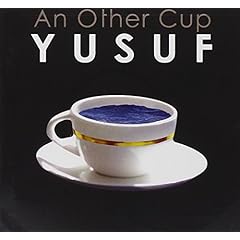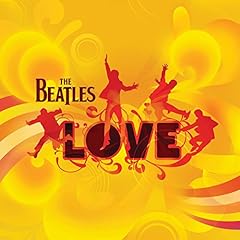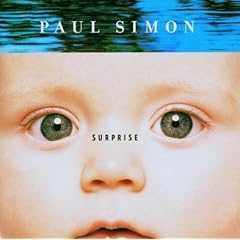Getting back in the groove. Thanks, everyone, for your prayers and thoughts during my recent illness and perpetual funk of mind. My throat is better; the fever's gone; I'm starting to get back to normal. Which means, I'm back in blogging form.
The Psalms. I've been occasionally reading Psalms from the Contemporary English Version, just to gain a different perspective on the language and the meanings of the Psalms. It's been slow going. Although I use the CEV in my work with teens -- primarily because it is easy to read and understand and also quite affordable (through the American Bible Society, I can order a case of 24 paperbacks for around $40) -- I have difficulty reading this version's rendering of the poetic books. Perhaps it's because I, like many in the West, first became acquainted with the Bible through the good ol' King James Version. The KJV poetry of a scripture like Psalm 23:
The LORD is my shepherd; I shall not want.
He maketh me to lie down in green pastures: he leadeth me beside the still waters.
He restoreth my soul: he leadeth me in the paths of righteousness for his name's sake.
... becomes, in the hands of the CEV translators:
You, LORD, are my shepherd. I will never be in need.
You let me rest in fields of green grass.
You lead me to streams of peaceful water,
and you refresh my life.
Besides the change from poetic to prosaic, there's often a change in perspective, from objective to subjective. The beginning of Psalm 103 (one of my favorites) -- "Bless the LORD, O my soul: and all that is within me, bless his holy name" in the KJV -- becomes "With all my heart I praise the LORD, and with all that I am I praise his holy name!" (emphasis added) The tone changes from an exhortation to a personal statement.
Sometimes the CEV changes the meaning of a verse. In the KJV, Psalm 40:4 reads: "Blessed is that man that maketh the LORD his trust, and respecteth not the proud, nor such as turn aside to lies." Besides being gender exclusive, phrases like "respecteth not the proud" are antiquated and foreign to the modern ear. In this case, I am thankful for the CEV's rendering: "You bless all of those who trust you, LORD, and refuse to worship idols or follow false gods." Here, however, the meaning shifts from God not giving heed to the proud and lying to God blessing those who do not worship idols. Those kinds of twisted scriptures can't be good. Still, I hope to glean something from the CEV's take on this magnificent collection of poetry.
Yancey on the Psalms. Since becoming a Christian, I've loved reading the Psalms, despite their incongruencies. Philip Yancey, who is one of my favorite contemporary Christian writers, apparently didn't. Lately I've been reading his book The Bible Jesus Read, which is about the Old Testament. Last night I read his treatment on Psalms and gleaned a number of insights. Here's one of them:
The 150 psalms present a mosaic of spiritual therapy in process. Doubt, paranoia, giddiness, meanness, delight, hatred, joy, praise, vengefulness, betrayal -- you can find it all in Psalms. Such strewing of emotions, which I once saw as hopeless disarray, I now see as a sign of health. From Psalms I have learned that I can rightfully bring to God whatever I feel about him. I need not paper over my failures and try to clean up my own rottenness; far better to bring those weaknesses to God, who alone has the power to heal.
:: Andrew 08:14 + ::
...
bloggedy blog
bloggedy blog recommends
bloggedy pod (my podcast page)
Independent hotels
in Missouri
eMusic's Power Charts: The Most Interactive Music Charts Online.
In rotation
What I've been listening to lately. Click album cover or hyperlink to hear track samples and learn more.
 Rickie Lee Jones, Sermon on Exposition Boulevard
Rickie Lee Jones, Sermon on Exposition Boulevard
 Patty Griffin, Children Running Through
Patty Griffin, Children Running Through
 Of Montreal, Hissing Fauna, Are You the Destroyer?
Of Montreal, Hissing Fauna, Are You the Destroyer?
 Field Music, Tones of Town
Field Music, Tones of Town
 De Bossen, The Girl Collection
De Bossen, The Girl Collection
 Cold War Kids, Robbers & Cowards
Cold War Kids, Robbers & Cowards

Frida Hyvonen, Until Death Comes

Tratore Basics Vol. 2, Novo Rock Brazil
 Yusuf: An Other Cup
Yusuf: An Other Cup
 The Beatles: Love
The Beatles: Love

The French Kicks: Two Thousand

The Blow: Paper Television

Freedom Haters Unite! A Bloodshot Records Sampler

Swan Lake: Beast Moans

Prototypes: Prototypes

Scanners: Violence Is Golden

Voxtrot: Mothers, Sisters, Daughters & Wives

Voxtrot: Your Biggest Fan

Macon Greyson: Translate

The Evens: Get Evens

Veruca Salt: Veruca Salt IV
 Bob Dylan: Modern Times
Bob Dylan: Modern Times

Pink Tuscadero: Look Your Best

Leigh Nash: Blue on Blue

Yo La Tengo: I Am Not Afraid of You and I Will Beat Your Ass

The Hold Steady: Boys and Girls in America

Bobby Bare Jr.: The Longest Meow"

The Be Good Tanyas: Hello Love

The Lemonheads: The Lemonheads

Ben Kweller: Ben Kweller

The Pipettes: We Are the Pipettes
 Paul Simon: Surprise
Paul Simon: Surprise

Exene Cervenka and the Original Sinners: Sev7en
 Johnny Cash: American V: A Hundred Highways
Johnny Cash: American V: A Hundred Highways

The John Doe Thing: For the Best of Us

The Fondas: Runaway Bombshell

Buzzcocks: Flat Pack Philosophy

Asobi Seksu: Citrus

Tapes 'n Tapes: The Loon

Various Artists: 2006 Pitchfork Music Festival Sampler (24 free tracks)

The Futureheads: News and Tributes

The Bottle Rockets: Zoysia

Camera Obscura: Let's Get Out of This Country

Art Brut: Bang Bang Rock & Roll

Drive By Truckers: A Blessing and a Curse

The Raconteurs: Broken Boy Soldiers

Belle and Sebastian: The Life Pursuit

Cat Power: The Greatest
bloggedy tags
from our sponsors
for your viewing pleasure
24x7
rocketboom
the Richard Show



 Simon Dawes,
Simon Dawes,